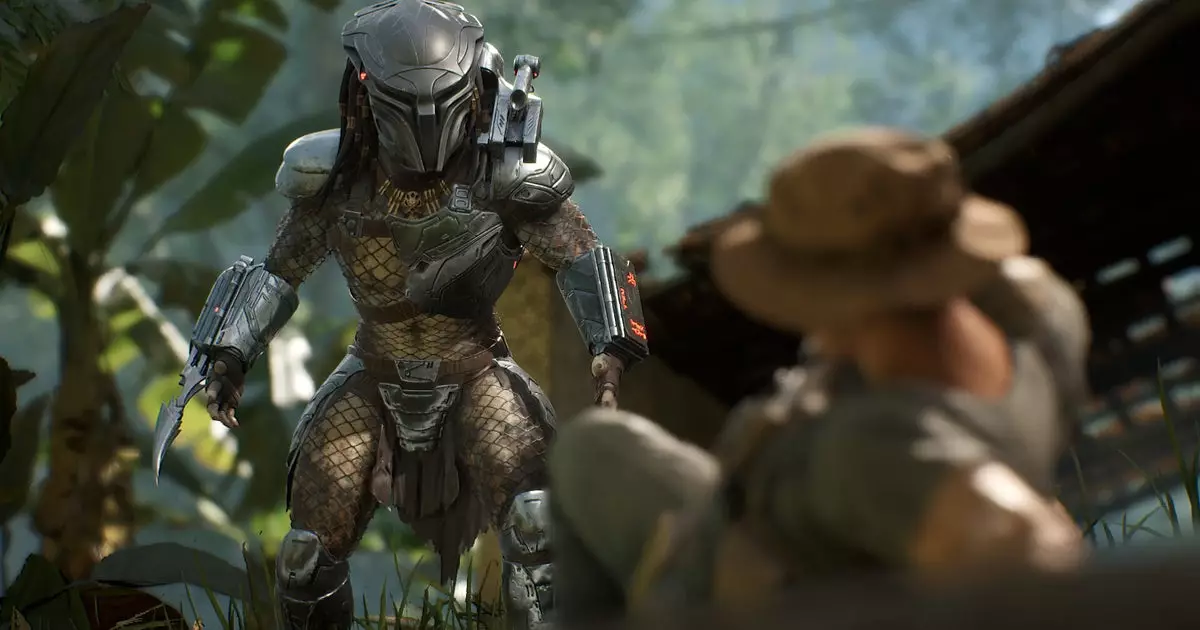In a surprising announcement, IllFonic, the development studio behind beloved titles such as Friday The 13th: The Game and Predator: Hunting Grounds, has initiated layoffs as it seeks to adjust its strategic direction. This news has rattled the gaming community, leaving many to ponder the implications of such shifts within a company renowned for its creative contributions to asymmetrical multiplayer experiences. CEO Charles Brunghardt’s statement on LinkedIn indicated the necessity of these decisions amid “the state of the industry,” which has indeed posed significant challenges for many game developers in recent times.
Layoffs are never a desirable outcome, but they often signal deeper issues within a company or the broader sector. IllFonic’s decision to scale back operations does not appear to be an isolated incident; rather, it reflects a prevailing trend in the gaming industry where financial pressures, shifting player interests, and the volatility of intellectual property rights have combined to create a challenging landscape for studios of all sizes.
One potential factor in IllFonic’s decision may be related to the expiration of licensing rights for their first major hit, Friday the 13th. Following the conclusion of the agreement that enabled them to develop the video game based on the infamous horror franchise, the game was removed from sale, representing a significant setback not only for IllFonic but for its community of players. This loss of a revenue-generating title could have necessitated a reevaluation of the company’s financial standing, compelling them to undertake cost-saving measures such as layoffs.
Moreover, IllFonic’s subsequent projects, like Ghostbusters: Spirits Unleashed and Killer Klowns from Outer Space: The Game, have not garnered the consumer traction the studio might have hoped for. Despite their innovative approaches to asymmetrical gameplay, these titles have failed to achieve a lasting presence in the market. This is illustrated by sparse player activity on platforms like Steam, which hints at difficulties in attracting and retaining a dedicated player base. As gaming trends evolve, the pressure mounts on developers to ensure their offerings resonate with current audiences, which can be an arduous task, especially when previous projects have set a high bar.
The gaming industry is notorious for its inherent volatility, and the recent surge in layoffs—like those at Ubisoft and others—suggests that many companies are facing the brunt of this instability. Reports indicate that approximately 14,000 industry professionals have lost their jobs this year, which is a striking increase compared to previous years. Such statistics do not merely highlight the misfortunes of individual companies; they also point to an industry-wide crisis that stems from a myriad of factors including economic downturns, changing consumer habits, and the challenges brought on by live-service models that many developers have adopted.
In attempting to pivot strategy at IllFonic, the statement from Brunghardt acknowledges the difficult realities faced by the company. Meanwhile, the euphemistic language often employed in these announcements—terms like “refining” or “rationalizing”—can be seen as attempts to soften the blow for affected employees. However, such language may also come across as insensitive, particularly to those who have just lost their jobs. The term “refining,” for instance, evokes imagery of a cold, mechanical process that dismisses the human element involved in such decisions.
As IllFonic seeks to navigate these turbulent waters, the future for remaining employees and new hires remains uncertain. There is no shortage of talent within the studio, and Brunghardt’s call for other studios to consider those affected by the layoffs reflects both a communal spirit within the industry and a recognition of the importance of adaptability in today’s marketplace.
Ultimately, the challenges IllFonic faces may serve as a poignant reminder of the landscapes developers traverse in the gaming world. With changing technologies, evolving player expectations, and financial pressures mounting, the importance of strategic flexibility cannot be overstated. As IllFonic repositions itself for the future, all eyes will be on how the studio reinvents its strategic vision and whether it can recapture the magic that brought its earlier projects to life. Meanwhile, the gaming community can only hope for the best for those impacted by these difficult changes.


Leave a Reply